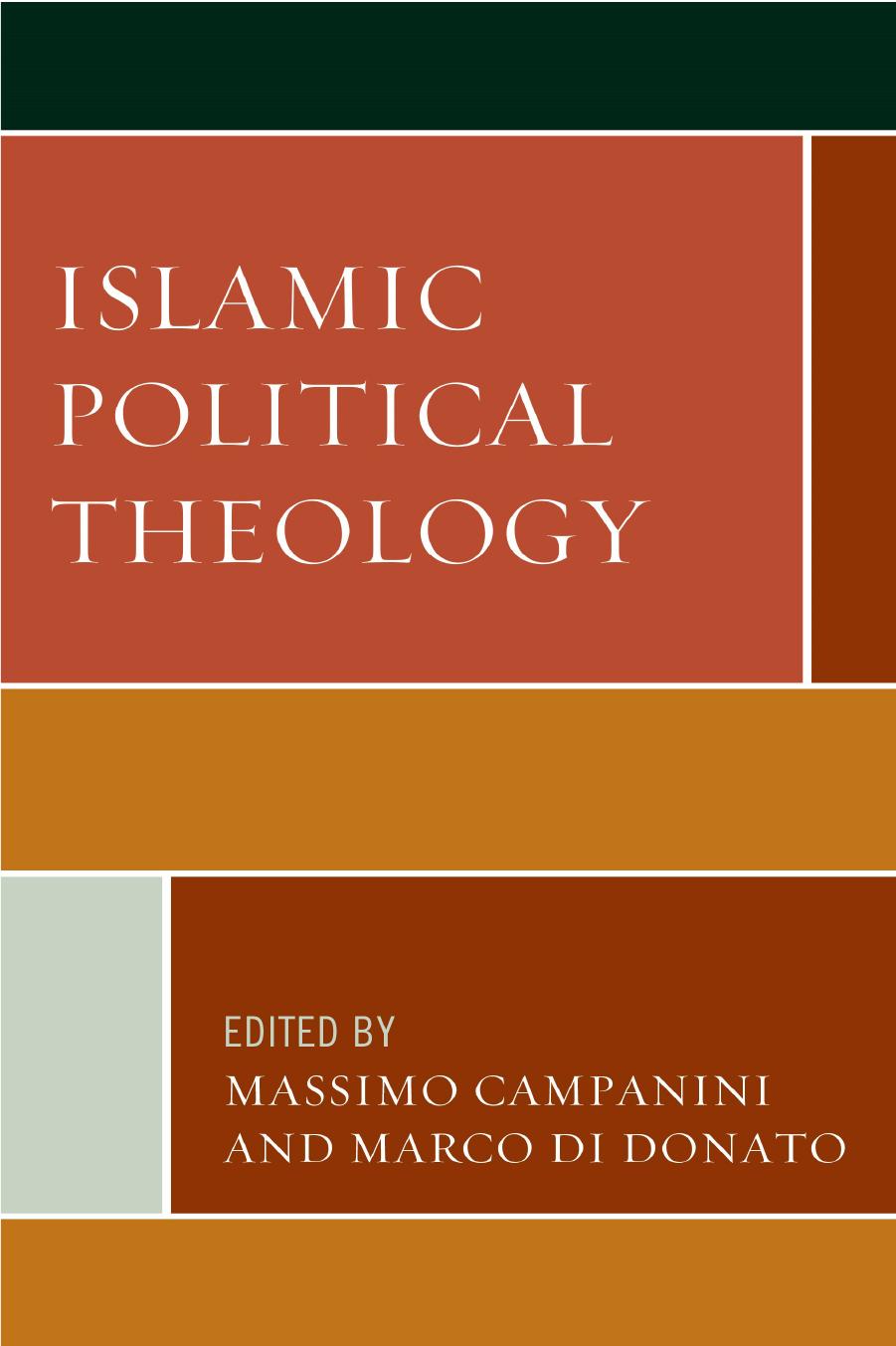Islamic Political Theology by Massimo Campanini and Marco Di Donato

Author:Massimo Campanini and Marco Di Donato
Language: eng
Format: epub, pdf
ISBN: 9781498590594
Publisher: Lexington Books
Chapter 7
Critique of the Islamic Political Thought in the Middle Ages
Revisiting Abdessalam Yassineâs Political Theory
Driss Makboul and Mohamed Elghazi
Introduction
Abdessalam Yassine (d. 2012) is one of the most outstanding Muslim scholars who have been critical of the political heritage throughout Islamic history. In his analytical philosophical approach, concepts and conceptions are not admitted unless they are assessed and restructured. The credibility of this approach comes from the fact that it implicitly or explicitly begins not only by analyzing the prevailing knowledge systems, perceptions, and theories, but also by seriously examining and deconstructing their consistency and reliability. In his method, Imam Yassine does not preoccupy himself with studying scattered parts separately, but he often criticizes the foundations upon which the whole paradigm is based.
A close consideration of his entire works reveals that Yassineâs critical approach is based upon a variety of analytical tools that do not only challenge the ideas of his opponents but also go beyond the mere and naïve confrontation of the adversaries for the sake of self-triumph. Imam Yassine believes that historical issues are more complex than the pros and cons of idealism. He thinks that they have a moral character in their roots.
In this study, we address aspects of Abdessalam Yassineâs critique of the Islamic political thought across various religious sects and ideological trends. We first show how he refused the Sunni interpretations that produced the ideas of âthe legitimacy of the triumphantâ (sharâiyyat al-motaghallib) and âthe Hereditary Ruleâ (al-hukm al-wiratii) which reflects a kind of submission to those who have power and the means of oppression putting an end to the era of the Islamic democracy (shura). Then, we discuss how he criticized the Shii doctrine of the âHoly Testimonyâ (wilayat al-ahd) and the âAwaited Mahdiâ (al-mahdi al-muntadhar), as they both reflect historical lethargy and monopoly of the truth. Afterward, we consider the reasons why he condemned the extremism of the Kharijites (al-khawarij) sect that produced the ideas of âAtonement of Authorityâ and âArmed Uprisingâ against the rulers. Finally, we will see how heal so criticized the mystical naivety of the Islamic Sophism that produced the ideas of âpassive submissionâ to the governing regime regardless of how despotic it might be.
By the same token, Abdessalam Yassine called for adopting an approach of renovation and reform inferred from Qurâanic values and guided by the prophetic tradition. That is why a kind of systematic balance is clearly discernible in his proposed project. For instance, he called for anti-corruption activism, but by peaceful means. He encouraged a kind of opposition against despotic regimes that should be framed by the agreement between sincere factions and wings to restore power legitimacy, or the restoration of the peopleâs ârightâ to indirectly participate in governance. He insisted that the foundational agreement between the âsovereignâ and the âsubjectsâ should be based on justice in return of loyalty, and on freedom in exchange for duty. Only then, the authority gains or loses its public consensus or its âpublic qualityâ as Kant calls it (Reiss 1991).
Imam Yassineâs
Download
Islamic Political Theology by Massimo Campanini and Marco Di Donato.pdf
This site does not store any files on its server. We only index and link to content provided by other sites. Please contact the content providers to delete copyright contents if any and email us, we'll remove relevant links or contents immediately.
The History of Jihad: From Muhammad to ISIS by Spencer Robert(2618)
Nine Parts of Desire by Geraldine Brooks(2358)
The Turkish Psychedelic Explosion by Daniel Spicer(2353)
The First Muslim The Story of Muhammad by Lesley Hazleton(2266)
The Essential Rumi by Coleman Barks(2043)
1453 by Roger Crowley(2022)
The Last Mughal by William Dalrymple(1855)
Trickster Travels: A Sixteenth-Century Muslim Between Worlds by Davis Natalie Zemon(1846)
Muhammad: His Life Based on the Earliest Sources by Martin Lings(1644)
God by Aslan Reza(1639)
by Christianity & Islam(1627)
A Concise History of Sunnis and Shi'is by John McHugo(1566)
No God But God by Reza Aslan(1539)
Magic and Divination in Early Islam by Emilie Savage-Smith;(1533)
The Flight of the Intellectuals by Berman Paul(1501)
Nothing to Envy by Barbara Demick(1445)
Art of Betrayal by Gordon Corera(1429)
What the Qur'an Meant by Garry Wills(1391)
Getting Jesus Right: How Muslims Get Jesus and Islam Wrong by James A Beverley & Craig A Evans(1338)
